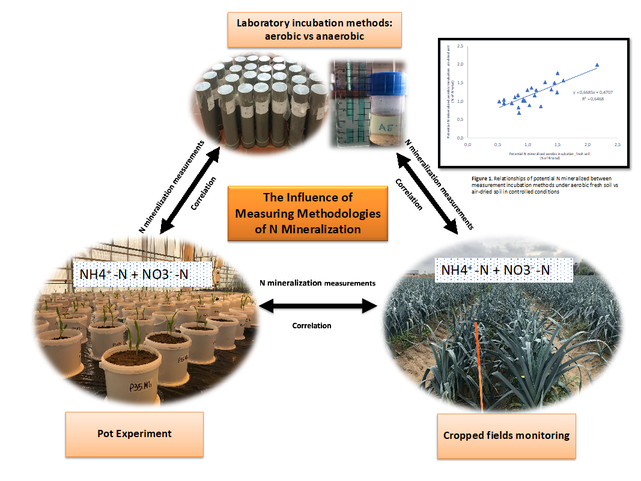Predicting Potential Nitrogen Mineralization from Intensively Managed Agricultural Fields: The Influence of Measuring Methodologies
Nitrogen mineralization from native soil organic matter (SOM) is a crucial parameter for efficient N management in intensive agriculture and is determined by a combination of static or inherent (mineralogy, texture) and dynamic soil properties. The process of net N mineralization can, in principle, be quantified by monitoring the evolution of soil mineral N over time, either in the field or under controlled conditions in the laboratory. Many different methodologies and set-ups have been used to this end. Laboratory or field measurements of N mineralization are labor-intensive and costly and therefore, much research has been dedicated to finding alternative methods that would predict N mineralization based on a single (bio)chemical characterization of the SOM, based on the correlation between such (bio)chemical characteristics and lab based assessments of N mineralization. A fundamental problem, however, is the lack of knowledge on how well laboratory-based assessments of N mineralization correlate amongst each other, and more importantly, how they correlate with actual mineralization in a cropped field. This project aims to correlate a diversity of assessments of N mineralization in the laboratory with measurements made in cropped soil under controlled conditions, and measurements in a cropped field, for a wide range of soils with comparable mineralogy and texture. Also, a variety of chemical and biological soil properties will be measured during these incubations and relations with N mineralization will be developed. We hypothesize that i) the assessment of N mineralization in laboratory incubations is independent of the incubation method used; ii) laboratory based assessments of N mineralization correlate well with actual N mineralization in the field; iii) N mineralization from native SOM cannot be predicted by a single soil (bio)chemical parameter.
